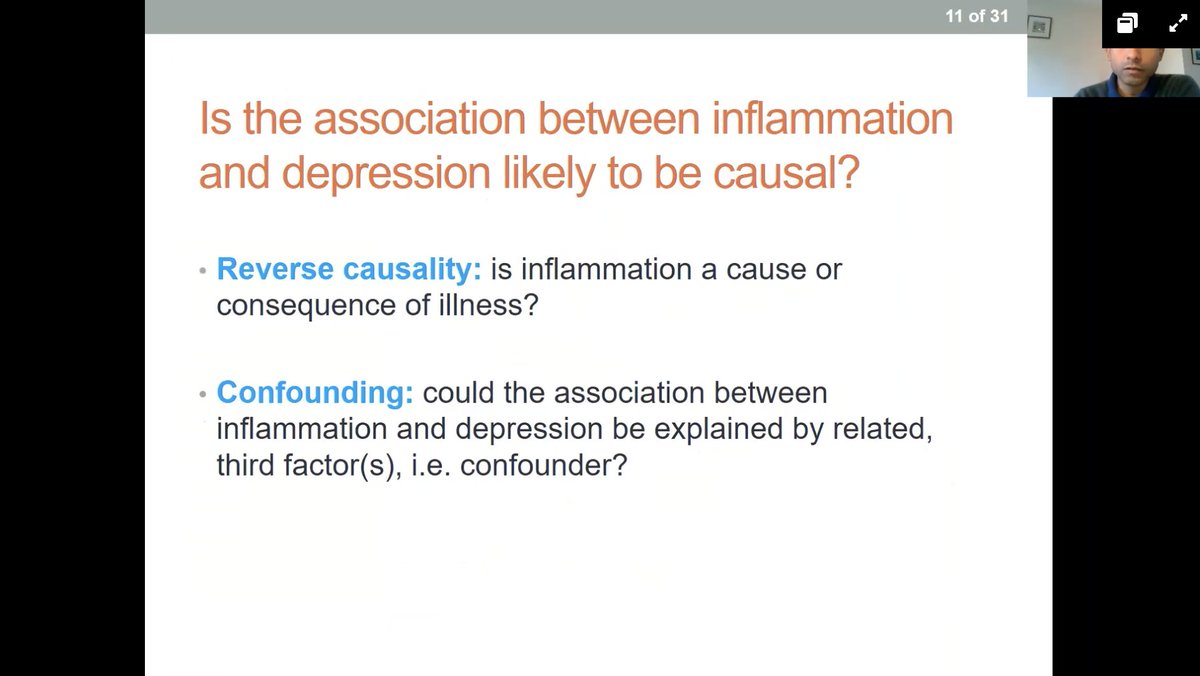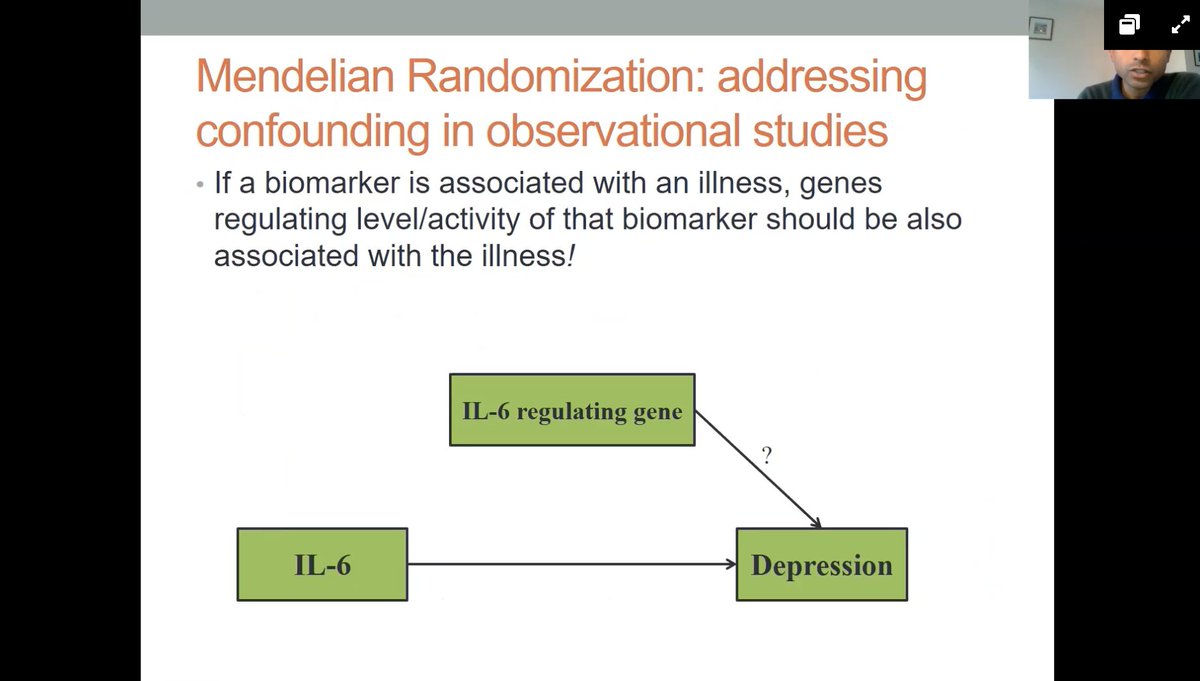Our next talk at #IEPA12 is by @golam_khandaker from @psychiatry_ucam who will be discussing the immune system as a potential target for treatment and prevention of serious mental illness and comorbid cardiometabolic diseases
This talk will focus on the potential role of the immune system.
Is inflammation likely to be a causal risk factor for depression, psychoses and comorbid physical illness? #IEPA12
Is inflammation likely to be a causal risk factor for depression, psychoses and comorbid physical illness? #IEPA12
Inflammation: what does it mean and why is it relevant? (when a friend becomes a foe)
-innate immunity (first line of defence) this is the focus on the talk today
-cytokines are similar to neurotransmitters: they enable white blood cells to talk to each other
#IEPA12
-innate immunity (first line of defence) this is the focus on the talk today
-cytokines are similar to neurotransmitters: they enable white blood cells to talk to each other
#IEPA12
Inflammation in psychiatry - this means "a low grade chronic activation of immune response measurable by blood test", which is very different from an acute infection where the magnitude of infection is often 10x or even 100x stronger #IEPA12
“we describe important areas of research regarding innate & adaptive immune response in schizophrenia & related psychotic disorders that, we think, will be of interest to psychiatric clinicians & researchers.” #IEPA12 @golam_khandaker @TheLancetPsych https://doi.org/10.1016/s2215-0366(14)00122-9
Inflammation leads to neurochemical changes that could lead to the behavioural changes we see in psychosis and depression #IEPA12
Activation of innate immune response can lead to depressive symptoms (e.g. 40% of hepatitis patients treated with interferon get depressed) #IEPA12
Setiawan @JAMAPsych 2015 Neuroinflammation in depression and psychosis #IEPA12 https://doi.org/10.1001/jamapsychiatry.2014.2427
Acute depression and psychosis are proinflammatory states (Happakoski BBL 2015, Miller 2011 Biological Psych)
Our innate immune response is activated and our body tries to fight off "the infection” (Osimo, Psychol-Med) #IEPA12
Our innate immune response is activated and our body tries to fight off "the infection” (Osimo, Psychol-Med) #IEPA12
Is the association between inflammation and depression likely to be causal?
-reverse causality (perhaps inflammation is a consequence of depression?)
-confounding (perhaps a third factor is at work, i.e. not inflammation or depression)
#IEPA12
-reverse causality (perhaps inflammation is a consequence of depression?)
-confounding (perhaps a third factor is at work, i.e. not inflammation or depression)
#IEPA12
Longitudinal studies (ALSPAC) help us look into reverse causality & confounders (Khandaker @JAMAPsych 2014) Stepwise increases in depression and psychosis following inflammation (age 9+18 children) #IEPA12 https://jamanetwork.com/journals/jamapsychiatry/fullarticle/1895671
These findings have been replicated in Finnish and Swedish samples #IEPA12
All of this suggests that reverse causality is an unlikely explanation for the association between inflammation and depression #IEPA12
Mendelian randomisation has helped researchers overcome the problem of potential confounding (using genetic variations as proxies for biomarkers) (Khandaker BBI 2018, Khandaker Molecular Psychiatry 2019) showing inflammation as a shared mechanism for depression/psychosis #IEPA12

 Read on Twitter
Read on Twitter









